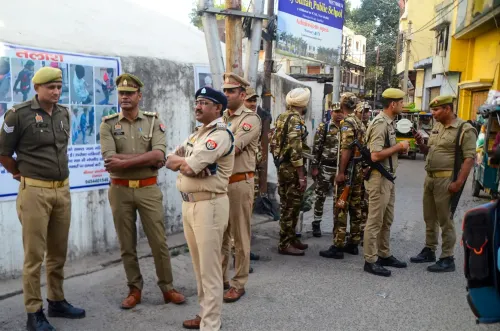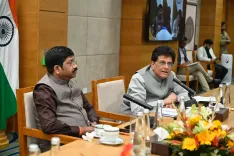How Did Indira Gandhi's Bold Leadership Shape a Self-Reliant Nation?

Synopsis
Key Takeaways
- Indira Gandhi's leadership was pivotal in shaping modern India.
- Her commitment to national integration is celebrated annually.
- She played a crucial role during the Green Revolution and the 1971 war.
- Gandhi's legacy continues to inspire unity and progress.
- National Integration Day serves as a reminder of her contributions.
New Delhi, Nov 19 (NationPress) The Congress party commemorated the birth anniversary of former Prime Minister Indira Gandhi at Shakti Sthal in New Delhi on Wednesday. CPP Chairperson Sonia Gandhi, Leader of Opposition in the Lok Sabha Rahul Gandhi, Congress National President Mallikarjun Kharge, Congress General Secretary K.C. Venugopal, and other prominent party members gathered to offer floral tributes to the former Prime Minister.
Earlier, the Congress took to X, stating, "On her birth anniversary, we honor Indira ji's fearless leadership, decisive vision, and unwavering commitment to India's progress. From the Green Revolution to the liberation of Bangladesh, her bold leadership forged a strong, self-reliant nation that did not bow to any superpower."
Indira Gandhi, affectionately known as the 'Iron Lady of India', was born on November 19, 1917, in Allahabad, Uttar Pradesh, into a Kashmiri Pandit family. She was the daughter of India's first Prime Minister, Jawaharlal Nehru, and Kamala Nehru.
National Integration Day, observed every year on November 19, aligns with Gandhi's birth anniversary and is dedicated to acknowledging her significant role in shaping India's political, social, and economic landscape.
As India advances toward global prominence, National Integration Day serves as a reminder of Gandhi's contributions to unifying the nation. The observance was initiated by the Indian National Congress in 1985 to honor her efforts in promoting unity.
The day holds immense importance, providing an opportunity to celebrate India's diversity and acknowledge the significance of collaborative efforts for the nation's development.
During her tenure as Prime Minister from 1966 to 1977 and again from 1980 until her tragic assassination in 1984, Gandhi tirelessly worked to enhance national integration. Her political journey was marked by a steadfast commitment to unity and integrity.
One of her most notable achievements was her decisive leadership during the 1971 India-Pakistan war, resulting in the creation of Bangladesh. This solidified her reputation as a leader with a strong vision and resolve.
Throughout her political career, she emphasized the importance of uniting individuals from diverse regions, cultures, and backgrounds under a cohesive national identity. Her leadership and policies consistently focused on fostering unity and propelling the nation's development.









